
Motorcycle Accident Lawyer | Indianapolis
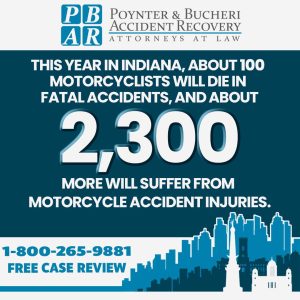
In the event of a motorcycle crash, you’ll want to have an experienced motorcycle accident lawyer. Indianapolis is home to Poynter & Bucheri, the best law firm in the area.
This year in Indiana, about 100 motorcyclists will die in fatal accidents, and about 2,300 more will suffer from motorcycle accident injuries. Motorcyclists can’t always avoid catastrophic collisions because other drivers on the road don’t see them or don’t notice they’ve hit them until it’s too late. If you have recently been in a motorcycle accident, the lawyers at Poynter & Bucheri are here to help you.
The Best Motorcycle Accident Lawyers | Poynter & Bucheri

Even in a low-speed motorcycle crash, a motorcyclist can easily suffer traumatic and life-threatening injuries that require months or years of recovery time.
If you’re in an accident, a motorcycle accident lawyer can help you receive fair compensation for your injuries. In the event of a traumatic injury or permanent disability, the compensation for damages could be substantial. Be aware there’s a limited timeframe to make these claims.
Call 1-800-265-9881 or (317) 780-8000, or visit our contact page because we offer free reviews of potential personal injury cases. You can also chat with a representative 24/7 online to connect with a motorcycle accident lawyer and ask your questions about filing a personal injury claim in Indiana!
Common Injuries Caused by Motorcycle Accidents in Indiana
A motorcyclist often suffers traumatic and serious injuries in a collision when the rider is thrown from the motorcycle, crushed, or run over by one or more motor vehicles. There’s no time to waste after an accident like this, and a quick call to 911 could save your life.
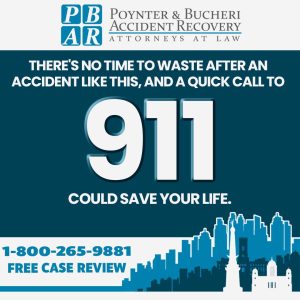
Some physical injuries (including fatal injuries) don’t present symptoms until hours or days after the crash. For instance, people sometimes don’t notice symptoms of a brain injury or internal organ damage for three or more days after a traumatic injury.
Motorcyclists are especially vulnerable to minor injuries like road rash to serious injury or death because their bodies are more exposed to the impact.
Commonly sustained injuries sustained by motorcyclists and their passengers in a serious accident include:
- Traumatic brain injuries (TBIs), closed head injuries, penetrating head injuries, and other brain injuries
- Fractures and broken bones across the body
- Lacerations to the face, wrists, ankles, knees, and elbows
- Spinal cord and back injuries
- Shoulder and neck injuries
- Internal bleeding and damage to internal organs
- Paralysis or other permanent impairment
- Scarring and disfigurement
- Infections and other complications from injuries
- Severe burns and abrasions, including road rash
- Spinal cord injuries
Who Is Liable for Most Motorcycle Accidents?
Determining liability in a motorcycle accident can be complex and depends on the specific circumstances of each case, which is why you need a motorcycle accident lawyer.
Here’s a list of potential parties whom a motorcycle accident attorney can help prove are liable for an accident:
Other Motorists: Negligent drivers who violate traffic laws, such as running red lights or speeding, or drivers who fail to yield the right of way.
Motorcycle Operator: In some cases, the motorcyclist may be at fault due to reckless riding or violation of traffic rules.
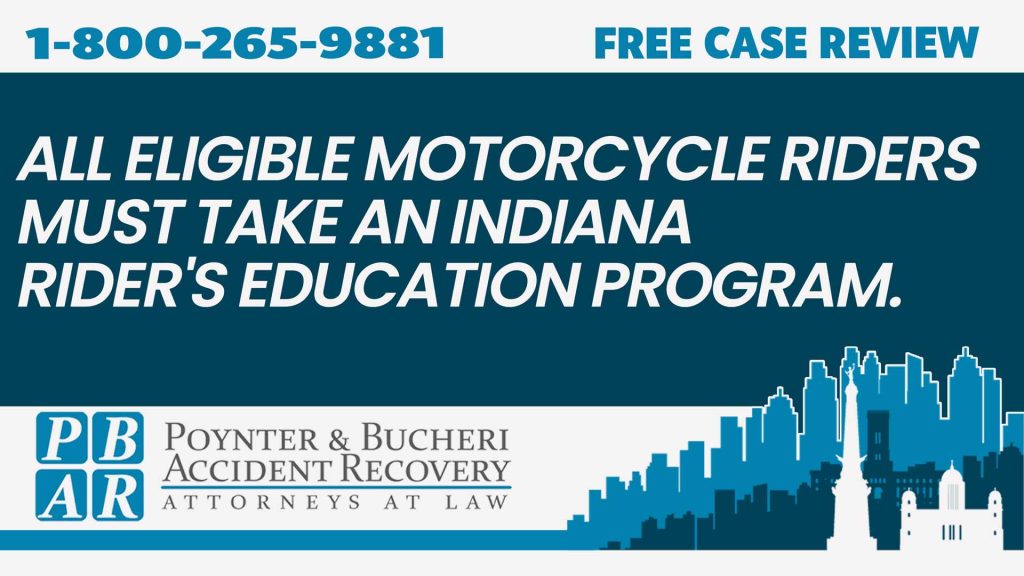
Vehicle Manufacturers: A defective motorcycle part or design flaws that contribute to the accident.
Government Entities: Poorly maintained roads or inadequate signage that may contribute to accidents.
Third Parties: Contractors or maintenance companies responsible for road repairs or construction.
Employers: If the accident involves a commercial vehicle, the employer may be held liable for the actions of their employee.
Intoxicated Drivers: Drivers under the influence of alcohol or drugs may be held responsible.
Pedestrians or Cyclists: Individuals who act negligently and contribute to the accident.
Mechanics or Repair Shops: If inadequate repairs or maintenance contributed to the accident.
Insurance Companies: Disputes over coverage, claims, or bad faith practices.
Your Insurance Company: If the at-fault driver does not have enough to cover the expenses, your underinsured motorist coverage will come into play.
Why Do I Need Motorcycle Accident Lawyers?
A delay in medical treatment can give the responsible party’s insurance a reason to argue that your injuries are not as severe as you claim or that they were pre-existing and didn’t happen during the crash. Insurance adjusters will try to get information that could weaken your claim or make it difficult for your attorney to bring you total compensation. If you speak with the insurance company, don’t worry. All you have to do is let your motorcycle accident attorney know so they can advise you on how to proceed further
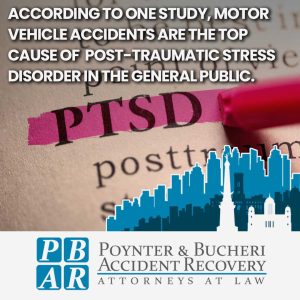
After you arrive at the hospital, you can receive an array of surgeries and treatments from medical specialists. Anesthesia is also expected and expensive. Surgeries, anesthesia, physical therapy, follow-up appointments, and your future medical costs can easily drive your medical expenses to $100,000 or more.
Motorcycle crashes often come with a substantial mental and emotional toll and long-lasting psychological damage.
According to one study, motor vehicle accidents are the top cause of post-traumatic stress disorder (PTSD) in the general public, with 39.2% of all motorcyclists involved in motor vehicle accidents developing PTSD.
In addition to your medical bills, expenses, and mental struggles, you and your family will have to deal with the cost of your destroyed vehicle and personal items, as well as the possibility of lost wages due to medical recovery time.
Losing your income can be catastrophic, but an Indianapolis motorcycle accident lawyer can help.
What Should I Do if I’m in an Accident?
After any accident, the priority should be getting emergency medical attention. Accept urgent medical treatment, contact the authorities, and start the process of getting a police report before leaving the accident scene of motorcycle accidents. You may need this documentation later for legal reasons.
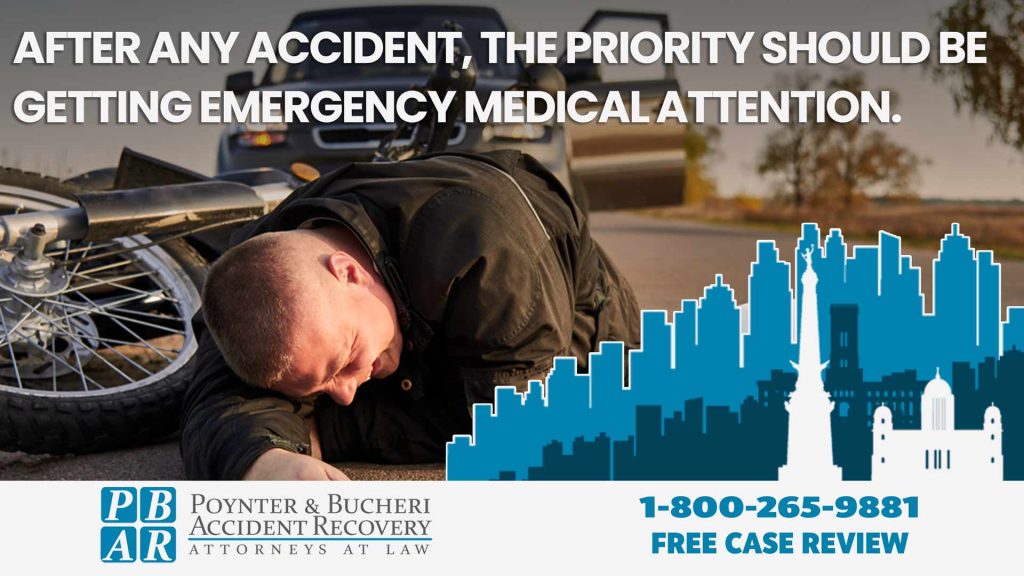
Try to remain calm even though it can be an extremely stressful and traumatic situation. Take pictures and detailed notes to capture the scene of the accident.
Note things that could be important later, like the weather and the sun’s position. Photograph any debris, potholes, nearby road signs, and other features that may be relevant to the accident. Exchange information with the other driver, but don’t make any statements or argue with them.
Your next call should be to our Indianapolis motorcycle accident attorneys to seek legal counsel. Discuss your options with your Indianapolis motorcycle accident attorney, and follow their advice about your legal claim and what to do moving forward. You may deserve compensation due to the negligence of the at-fault driver, and a motorcycle accident lawyer will help you determine your next steps after a motorcycle wreck.
Call 1-800-265-9881 or (317) 780-8000, or visit our contact page to request a free case review. You can also chat with a representative 24/7 online to talk to an Indianapolis motorcycle lawyer about filing a motorcycle accident claim in Indiana!
How to Avoid an Indiana Motorcycle Accident
To stay safe on the road and prevent Indianapolis motorcycle accidents from happening, motorcycle riders should follow these tips for motorcycle safety:
Wear Safety Gear
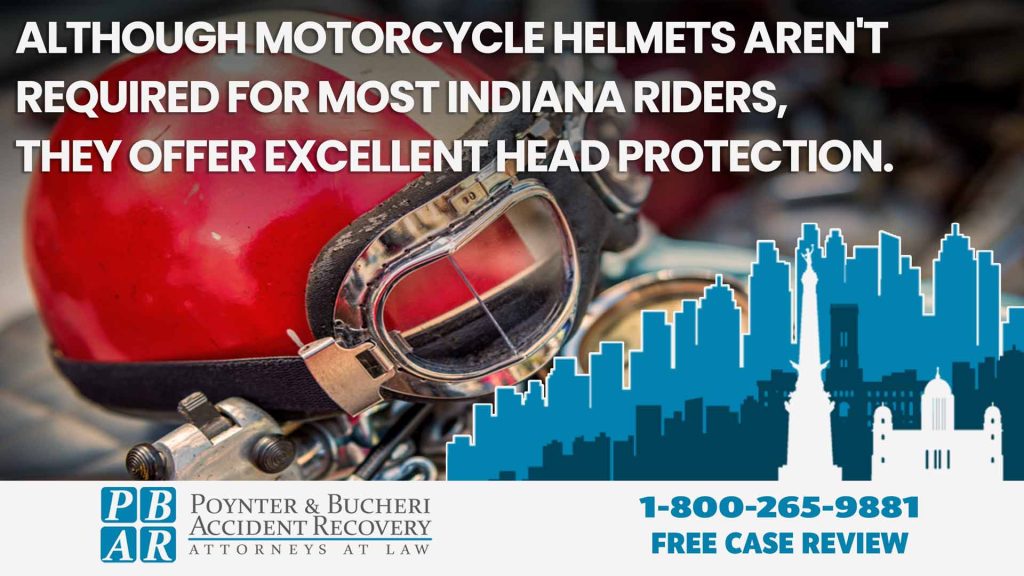
Although motorcycle helmets aren’t required for most Indiana riders, they offer excellent head protection and show that you’re trying to be a responsible rider. Invest in motorcycle safety garments like eyewear, a jacket, thick pants, gloves, and boots to avoid being seriously injured from motorcycle accidents.
Take a Safety Course
Even an experienced rider can benefit from a safety course, and your company might give you a discount for refreshing your knowledge.
Maintain Your Motorcycle
Although inspections aren’t required in Indiana, a mechanic’s checkup could prevent an issue that costs you your life. Do routine checks of your turn signals, brakes, mirrors, engine, and tires.
Follow the Speed Limit
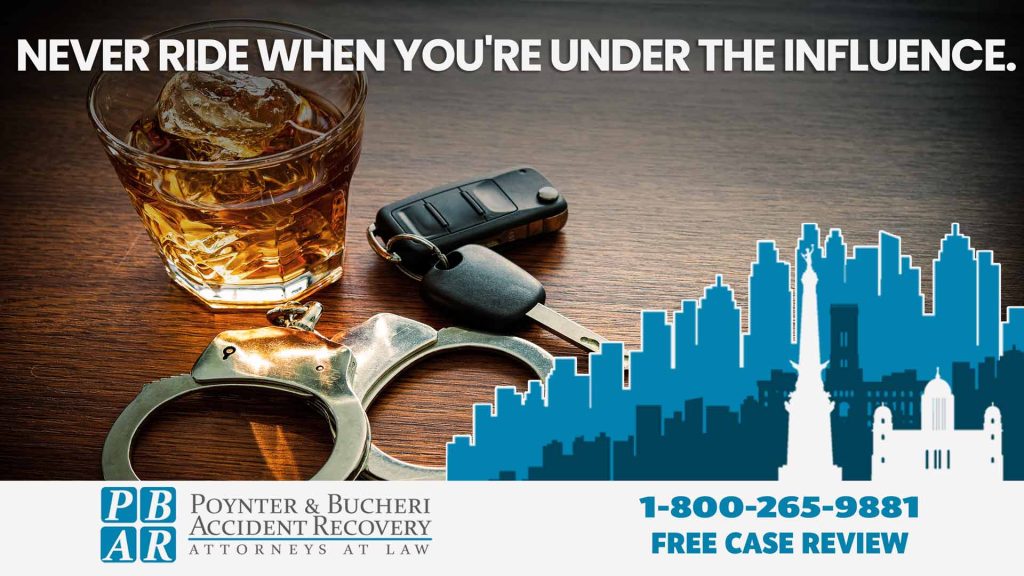
Speeding is a significant contributor to motorcycle versus car accidents. Stay within the speed limit and slow down around turns and other areas that could create risky situations.
Drive Sober and Alert
Never ride when you’re under the influence. Watch for road debris and potholes that could cause you to skid. Awareness helps you stay safe on the road.
Investigating a Motorcycle Accident in Indiana
The police may investigate your motorcycle accident cases and work with the prosecutor to file charges. Regardless of the police investigation, an experienced motorcycle accident lawyer can also do an investigation with the help of your Indianapolis motorcycle accident lawyers to determine if you should file a personal injury lawsuit over your motorcycle accident cases.
Although each of our motorcycle accident clients is unique, your Indianapolis motorcycle accident lawyer will help you examine the circumstances of the accident. Your motorcycle accident lawyers can hire an accident reconstruction expert if needed to determine who was involved, what kinds of negligence might be involved, and which motorcycle laws apply to your situation.
Indiana Motorcycle Laws
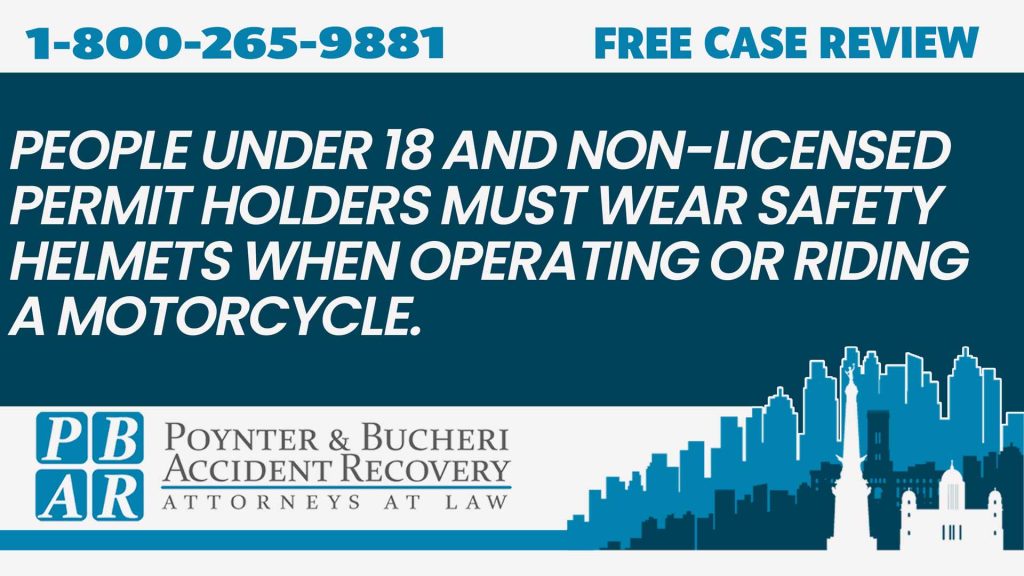
Helmets: People under 18 and non-licensed permit holders must wear safety helmets when operating or riding a motorcycle. Anyone under age 18 must wear protective glasses, goggles, or transparent face shields as part of their safety headgear. Everyone else does not need to wear a helmet. When in motorcycle accidents while not wearing a helmet, Indiana’s comparative fault rule may place more blame on you for your catastrophic or severe injuries after motorcycle or car accidents.
Motorcycle Rider Education: All eligible motorcycle riders also must take an Indiana rider’s education program. A rider can skip the education program if they pass a motorcycle skills test.
Motorcycle Features: Handlebars on a motorcycle must be no higher than 15 inches above the seat. Your bike must have a passenger seat and footrests if you carry a passenger. Motorcycles manufactured after January 1, 1956 must have rear-view mirrors, turn signals, and a speedometer.
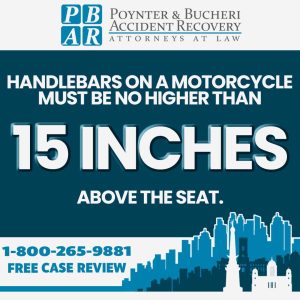
Lights and Sounds: Headlights must be used daily to stay visible to other drivers. Unlike many states, Indiana has no muffler requirements or maximum motorcycle sound levels.
Inspections and Insurance: Indiana is a non-inspection state and does not require motorcycles to be inspected or pass any smog or drivability test. However, the law does require Indiana motorcycle riders to obtain compulsory liability insurance coverage.
Lane Sharing: Lane sharing between motorcycles and other types of vehicles is not allowed in Indiana. Two motorcycles can drive alongside one another in the same lane by mutually consenting, but a bike and a different kind of vehicle are never permitted to share a lane.
Who Is Responsible for a Motorcycle Accident?
Every accident is unique and has its own set of circumstances. Without looking at your situation, it’s hard to say who is at fault, whether you share the blame, and what will happen next. It helps to understand the idea of “fault” in Indiana’s injury law.
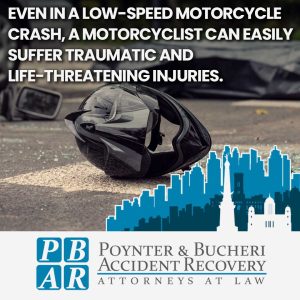
Indiana is a “fault insurance” state for motor vehicle accident claims. To recover compensation from another party for fatal motorcycle collisions, you must prove that the other party was at fault for the motorcycle accident.
In other words, you must provide evidence that proves the other party was responsible for the crash that caused your injuries and that you suffered damages due to the collision.
Motorcycle accident victims have an unfair reputation for being reckless and aggressive motorists. While this stereotype is unfounded and simply not true, an insurance company will use the stereotype to blame the motorcyclist for the accident. If the insurance company can convince a jury or judge that you caused the motorcycle crash yourself, paying your economic and non economic damages under Indiana’s fault laws is not required.
It’s important to understand that others don’t have to prove you were 100% at fault for the Indiana motorcycle accident to reduce their liability.
Under Indiana’s modified comparative fault laws, the company must prove that you were more than 50% at fault for the collision to avoid paying you any money for your injury claim. This defense strategy plays right into juror bias and negative stereotypes about motorcyclists.
However, another way to use the concept of comparative fault is to convince the jury you were partially at fault for the crash. Any percentage of fault under 50% allows you to recover compensation, but it reduces the amount you may receive by the percentage of fault assigned to you by the jury.
If the jury determines you were 30% at fault for the crash because the jurors believe you were speeding at the time of the collision, your compensation is reduced by 30%, but you still receive significant compensation. Instead of $275,000 for your personal injury claim, the maximum compensation you can receive is $175,000, which is the total damages minus 30%.
This is the kind of outcome you can see with the help of an experienced motorcycle accident lawyer. Indianapolis is home to Poynter & Bucheri, where you will receive the best legal representation. Don’t try to navigate a tricky situation like this with the insurance company because they may try to confuse and mislead you. Don’t provide a recorded or written statement or sign any releases, including medical authorizations. Consult with your Indianapolis experienced motorcycle lawyer before giving more than the required information.
Call 1-800-265-9881 or chat with a representative 24/7 to get answers to your questions about filing a motorcycle accident legal claim in Indiana from our experienced motor accident lawyers!
What Damages Can I Win From a Motorcycle Accident Claim?
In a motorcycle accident claim in Indiana, you may be entitled to receive substantial compensation for your personal injury claim. Our Indianapolis motorcycle accident attorneys can help you recover compensation for wrongful death, property damage, lost wages, medical bills, pain, permanent impairments, suffering, and future damages.
Economic damages cover the quantifiable financial expenses incurred due to the accident, such as:
- Medical Expenses: Immediate and future medical treatments, surgeries, rehabilitation costs, medication, and medical devices.
- Lost Wages: Compensation for the time off work and any potential loss of earning capacity resulting from the accident.
- Property Damage: Costs to repair or replace your motorcycle and any other personal property damaged in the collision.
Non-economic damages, on the other hand, are intangible losses that do not have a specific monetary value:
- Pain and Suffering: For the physical pain and discomfort experienced during and after the accident.
- Emotional Distress: Compensation for anxiety, depression, trauma, and other psychological impacts.
- Loss of Enjoyment of Life: If the injury affects your ability to enjoy daily activities and hobbies.
- Loss of Consortium: Pertains to the impact of injuries on your relationships with your spouse or partners.
Keep in mind, Indiana operates under a “modified comparative fault” rule, which means that your compensation may be reduced if you are found to be partially at fault for the accident. Additionally, Indiana has a cap on certain non-economic damages in personal injury cases, so it’s important to seek legal advice to understand the full scope of compensation you may be entitled to.
Poynter & Bucheri Motorcycle Accident Lawyer | Indianapolis

At Poynter & Bucheri, our experienced Indiana personal injury lawyers will help you understand your rights after a motorcycle crash on Indiana roads. We can help you get the compensation you need to move forward with your life after the trauma of the accident.
Experienced Legal Representation Helps Motorcycle Accident Victims Receive Fair Compensation. We Specialize in Helping Injury Victims Like You Who Have Been Injured in Motorcycle Accidents.
For a free consultation with a motorcycle accident attorney from Poynter & Bucheri, LLC, call 1-800-265-9881 or (317) 780-8000 now.
